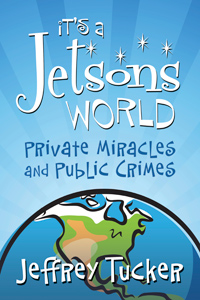A TLS New Year’s Resolutions List
The BasicsMost of us probably will admit that we keep resolutions only slightly better than politicians keep campaign promises. Even President Obama couldn’t keep a promise not to raise taxes on all but the wealthiest Americans, as the current “fiscal cliff” deal does not extend the 2% payroll tax cut, which impacts every person earning a paycheck.
 So don’t look to Washington to keep any resolutions in the new year. Instead, we’ve come up with a list of suggestions for our readers to continue stoking the flames of liberty, or at least keep them flickering a little while longer. (Editorial resolution for TLS: drop the tired metaphors for liberty already.)
So don’t look to Washington to keep any resolutions in the new year. Instead, we’ve come up with a list of suggestions for our readers to continue stoking the flames of liberty, or at least keep them flickering a little while longer. (Editorial resolution for TLS: drop the tired metaphors for liberty already.)
1. Play with guns (and invite a non-gun owner to come with you)
Guns, and more to the point gun control, promise to figure prominently in the media and in Congress this year, as the country still grapples with its most horrific school shooting yet. But the public debate is largely fueled by hysteria, misinformation, and outright lies. For the vast majority of gun owners, they are simply tools for self-defense, hunting, and having fun. And what better way to demonstrate the latter than an outing to a shooting range? For a lot of people, that’s the only legal place to try their hand at firing some types of guns. Actually handling an AR-15, the so-called assault rifle that is the focus of both media pundits and gun policy wonks, may help demystify them and return some sanity to the average non-gun owner’s perspective on these useful and important tools.
…
A TLS New Year’s Resolutions List Read Post »




